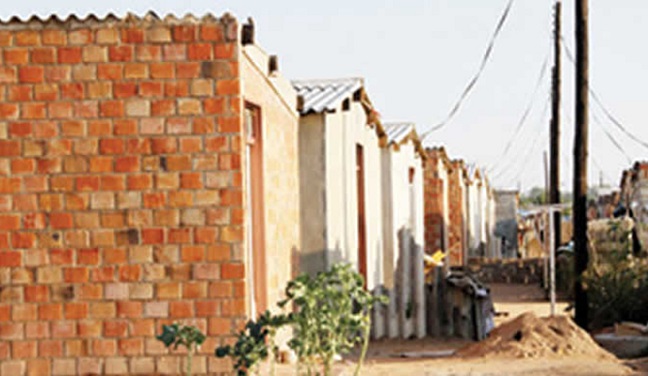Sixty percent of Garikai/Hlalani Kuhle residents in Cowdray Park rely on blair toilets while 40 percent practice open defecation due to failure by the government to properly service the area.
Government handed over the housing project to the Bulawayo City Council in March 2012, but the local authority has struggled to connect the more than 15 000 households to both the water and sewer reticulation system.
Now, the city council is carrying out the Bulawayo Water and Sewerage Services Improvement Project (BWSSIP) to improve municipal water supply and sanitation services in the city with the housing project one of the targeted areas.
The African Development Bank is funding the project to a tune of $37 million.
Under the project, community sewerage and outfall services in Cowdray Park will be constructed.
During a tour of the project site in Cowdray Park Friday, city engineers highlighted to stakeholders that they were facing challenges in carrying out the sewer works since houses had already been constructed.
“There are to be four lines of outfall sewers in Garikai Hlalani Kuhle area and they are to be situated at different places within the project area.
“One outfall sewer one stretches for 2km and starts from the upper end, down to the lower end to the treatment works. The sewer outfall has a 250 diameter and on completion will drain all sewer generated from 2 000 houses upstream,” said Mabhena, one of the engineers.
He illustrated that there was massive, deep excavation taking place accompanied by a lot of blasting but the challenge was houses had already been built.
“Every time blasting is taking place, we need to make sure people are safe. Blasting itself is a nuisance on its own and given the depth of the excavation, the contractor needs to blast three or four times to reach the required level. Some may ask why blasting has to be so deep instead of scraping on the surface but it’s impossible. Sewer outfalls have to flow on their own gravity deep down,” the site engineer explained.
He said this project was peculiar because an outfall sewer was to be constructed when people were already resettled.
“The service is coming after people have settled so most of those factors also dictate how we progress. After total completion, the drain sewer generated will serve 15 400 houses, which is quite a massive job,” said Mabhena.
Director of Enginnering Services in the city, Engineer Simela Dube added that more blasting was to take place and would have to be done between peoples’ houses.
“There is quite a lot of rock on the ground and the contractor is slowing down because of it and project may take longer. The blasting cannot be done as we wish, as we have to be mindful of people’s properties that are nearby but it has to be done in order to connect the sewer system. These are the challenges that come with settling people before you have provide critical services,” he said.
The engineer noted that if houses were damaged during the blasting, the contractor had to evaluate the damage on a case by case basis and would pay as specified by the project risk.
Dube noted that residents also had to contribute to the sewer line, since they were the beneficiaries while the project itself specified that council had to contribute towards it.
“Initially people had agreed to pay $50 but now the amount can’t add any value. Obviously we need to come back to the community and engage in terms of their contributions so that the sewer lines are laid. So far only 1 000 km of connection has been made at the moment,” claimed the city’s engineer.
According to the site engineers, the project was worth it as the outfall sewers were durable and designed for future development.
But they noted that the impact of the project was measured on the number of houses that were connected to the sewer network rather that the pipeline that was installed underground, which meant residents had to connect their systems.


Next time people will understand the need for organized settlement instead of being placed for some political reasons